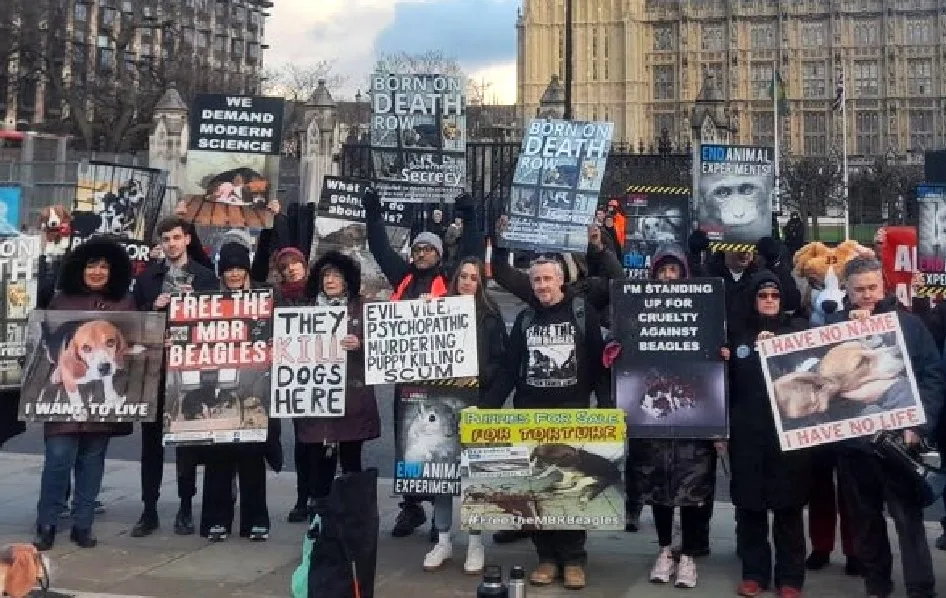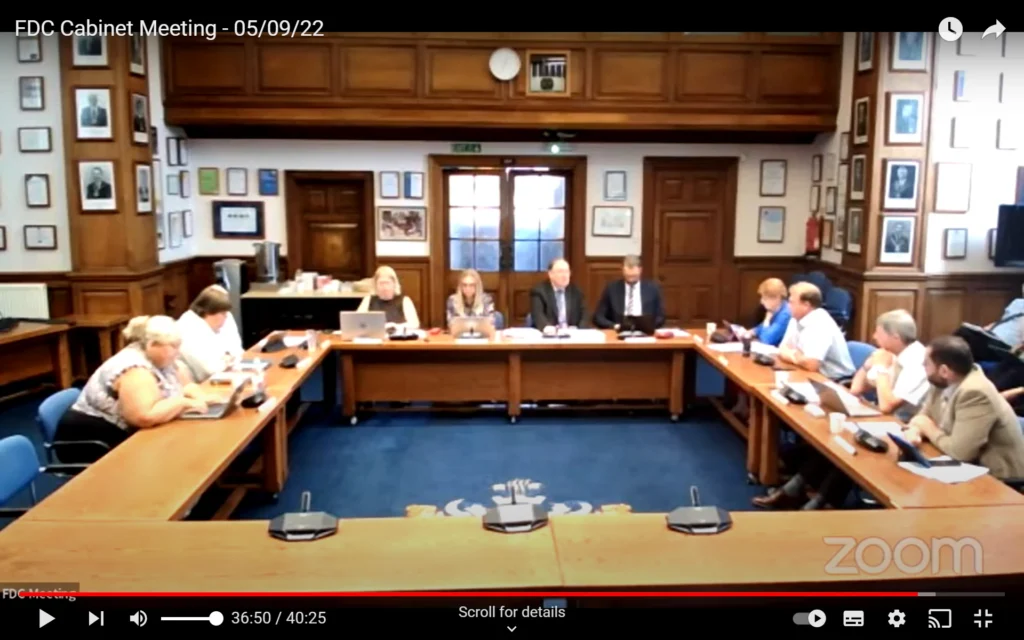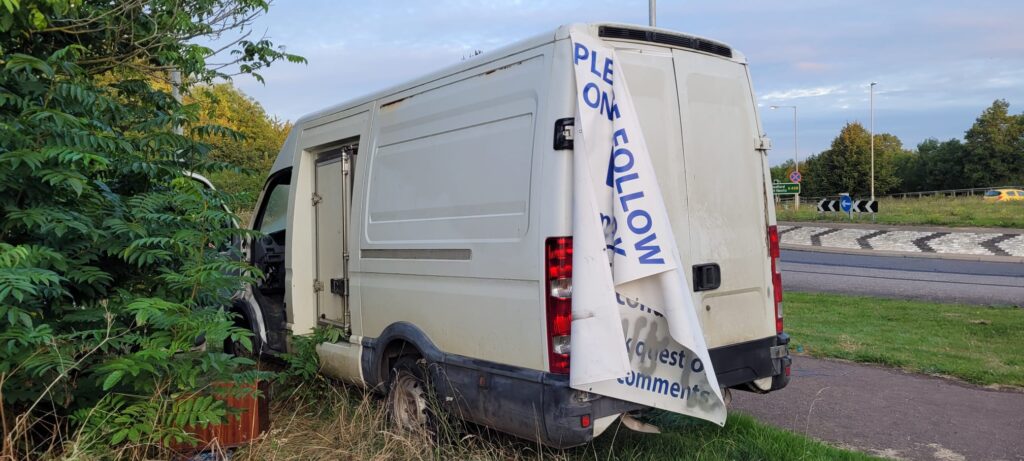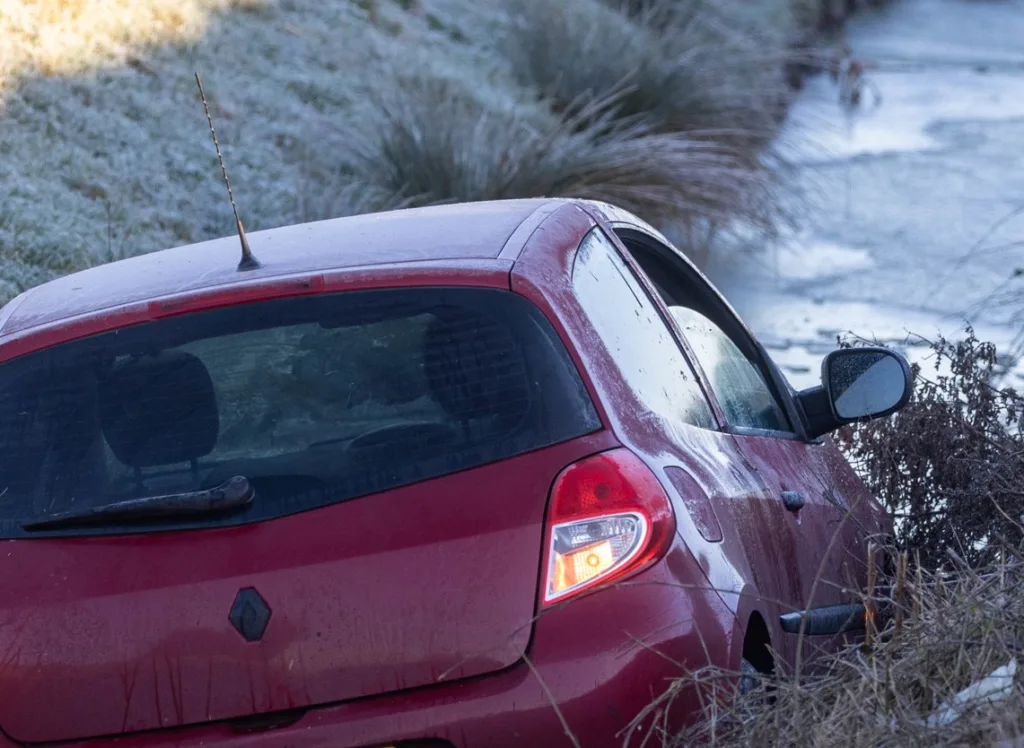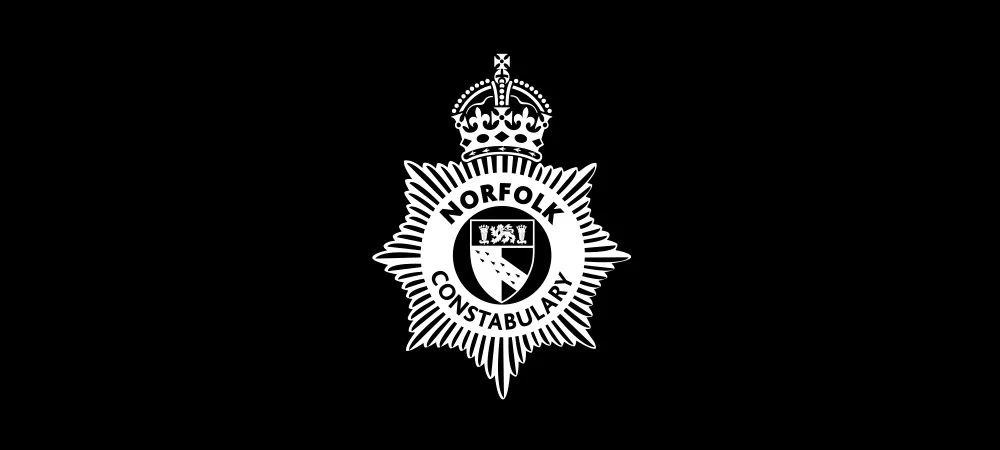A Government minister accused supporters of the protest group Camp Beagle of “intimidation, direct action against staff doing their job and the criminal theft of animals”.
Sarah Dines, the Parliamentary Under Secretary of State for the Home Department, spoke for the Government, during a Parliamentary debate on Monday.
MPs were debating a petition signed by 102,000 people calling for commercial breeders of animal laboratories – such as MBR Acres at Wyton – to be banned.

Ms Dines, however, clashed with MPs when she declared: “I must be very clear that while we fully uphold people’s right to peaceful protest within the law, recent events at the dog-breeding site that was mentioned have gone beyond peaceful protest, leading to criminal investigations and sanctions.”
However, Dr Rupa Huq, the Independent MP for Ealing Central and Labour, said that three separate constituents had come to her Friday surgery.
They had “opened my eyes to how the existing framework in this country is ethically, practically, morally, and scientifically bankrupt.
“I pay tribute to the valiant protesters at Camp Beagle who, for 18 months, have been outside the gates of Marshall Bio Resources in Cambridgeshire—it is happening not too far from here.
Elliot Colburn, the Conservative MP for Carshalton, and Wallington, supported Camp Beagle which he described as a “peaceful protest”.
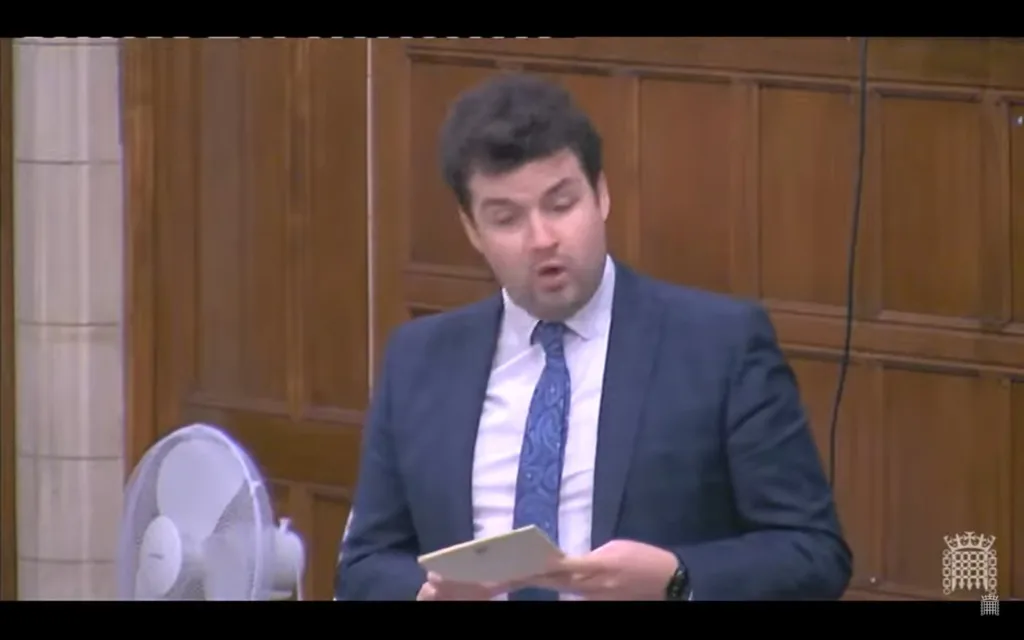
Animal testing should be consigned to the “dustbin of history,” he said.
“The evidence demonstrates that animal testing has very little benefit.
“We are in the single figures when we look at the percentage of tests that have gone from being successful in animals to successful in humans.
“It is a waste of money, and we should therefore increasingly be looking to consign animal testing to the dustbin of history.”
Mr Colburn was speaking after introducing a petition to the House calling for all licences for commercial breeders of laboratory animals to be scrapped.
The petition, with 102,000 signatures, was prompted by the protest at Camp Beagle outside MBR Acres at Wyton near Huntingdon.
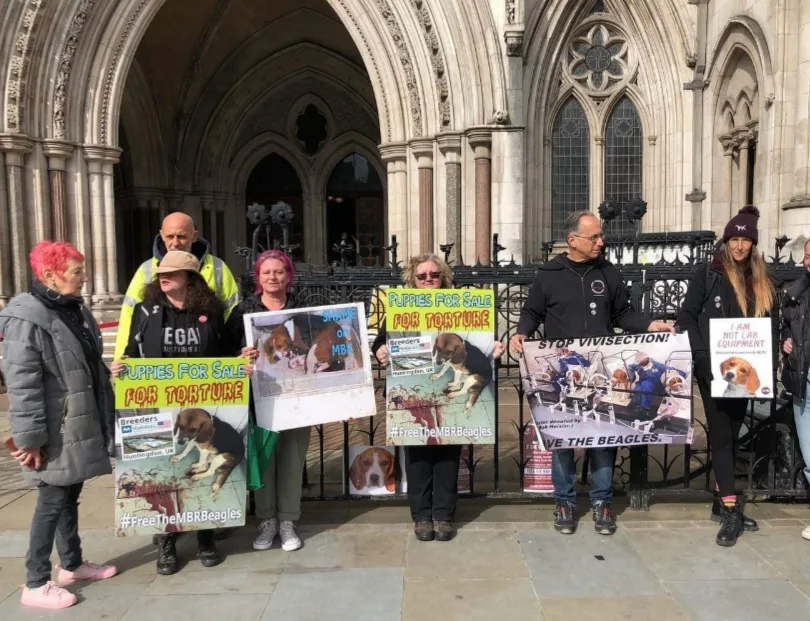
It also called for all project licences (PPLs) to be reviewed by an independent specialist committee.
The petition stated: “We believe the use of animals is scientifically, ethically, morally and financially (taxpayer funded) unjustifiable.”
The petition claimed that “commercial breeders of laboratory animals are profit rather than animal-welfare focused”.
Mr Colburn said: “The inspiration for the petition, while broadly focused on the policy of animal testing, relates to an individual case, the ongoing peaceful protest organised by Camp Beagle of a laboratory just outside of Cambridge.
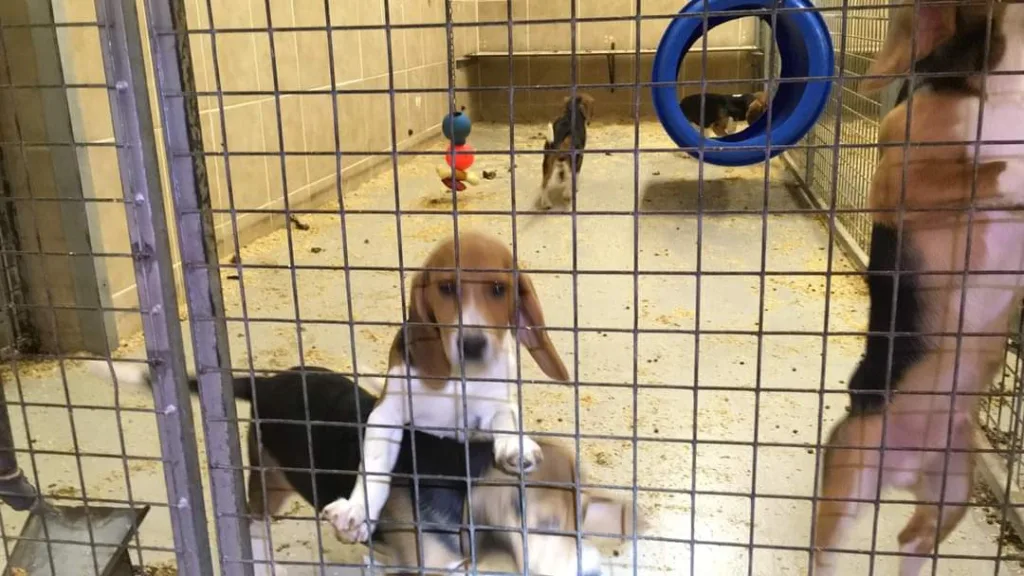
Camp Beagle protest has been ongoing for 18 months. It is now attracting nationwide and international attention“Activists have been sitting o the MBR Acres site in Cambridgeshire for over 18 months.
“The petition is another way of supporting those trying to raise awareness of commercial breeding and animal testing.”
The MP said the petition creator had told him this was first step in a campaign to try to change the law so that animals in facilities such as MBR Acres are protected by the Animal Welfare Act 2006, instead of the Animals (Scientific Procedures) Act 1986, which they currently fall under.
He said that currently applications for licences to conduct animal testing were evaluated by one of a very small number of inspectors.
“The reality is that applications are very unlikely to be refused,” he said.
“According to some research, no licences were refused for animal experimentation between 2018 and 2021.
“That is a problem, because analysis of the licences granted during the first half of 2020 showed that researchers often failed to adequately explain their strategy to search for non-animal methods.”
The MP described as “shocking” that in 2021 over 3 million scientific procedures were conducted on animals.
He said that if that figure was not large enough already, it was a 6% increase on the year before. The use of dogs increased by 3%, cats by 6%, horses by 29% and monkeys by 17%.
“I can only speculate why those increases occurred,” he said.
Mr Colburn said a recent report from the animals in science regulation unit described deeply troubling animal welfare failings in British laboratories between 2019 and 2021.
“I am sure colleagues have been sent videos, pictures and links to many of them, especially regarding the MBR Acres site in Cambridgeshire,” said the MP.
“Those failings include a non-human primate dying after becoming trapped behind a restraint device, boxes of 112 rats being moved in error to a compacter, where they were crushed alive, and numerous incidents of animals being left without food or water.
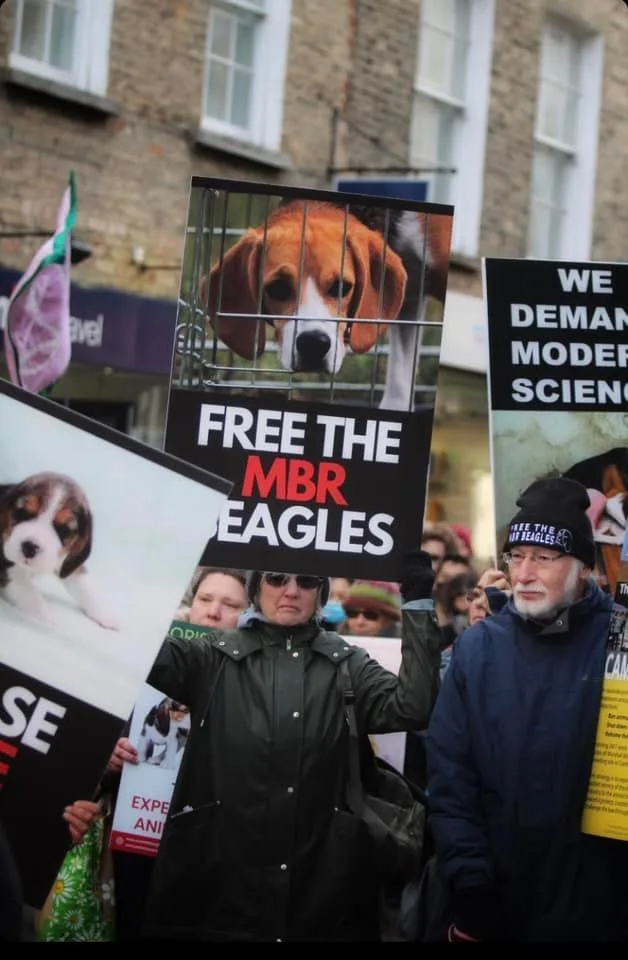
“In my view, the UK cannot claim to have high standards of animal testing welfare when we allow animals to die of starvation, suffocation, or asphyxiation—whether they are used for testing or whether they become one of the numbered surplus that get slaughtered every year.
“To give some numbers on that, in 2017, 1.81 million animals were either bred for laboratory use and discarded as surplus or killed for their body parts to be used for testing.
No information had been published about which establishments are primarily engaged in the breeding and creating of genetically altered animals, as opposed to experimental procedures.
He said the Government stopped publishing detailed information on procedures by establishment type in 2021.
“That means we do not truly know how many surplus animal deaths there have been,” he said.
“To be clear, that is animals bred only to be killed without any testing. This used to happen under an EU regulation, but since leaving the European Union, the UK is not required to publish statistics on the number of animals that die within the system without having undergone any testing procedures.”
He called for greater transparency and wider scientific scrutiny of the use of animals in research.
The MP also invited the Government to update the House on what steps are being taken to address problems surrounding commercial breeding and what investigations there are into the MBR Acres site.
It was time, he felt, to “move away from animal exploitation in favour of innovation”.
“Labour MP Kerry McCarthy of Bristol East, said MBR Acres in Cambridgeshire continues to breed 2,000 beagles each year, solely for animal testing.
“Beagles, as opposed to other dogs, are favoured for this kind of toxicity testing precisely because of their docile, compliant nature,” he said.

“They are either injected or force-fed poisonous chemicals, and they are asphyxiated before an autopsy is conducted to assess the effects on them.
“Dogs bred for testing have also been forced to inhale pesticides or have been deliberately given heart attacks.
“We have also heard that cats, horses, and monkeys are still being used.
“I do not think any of my constituents would support the continued testing on beagles, and we could have a quick win on this issue if we outlawed that.”
Taiwo Owatermi, the Labour MP for Coventry North West, said: “The time for action is now.
“A generation on from the achievements of the 1990s, we need a fundamental and binding review of the entire field of animal testing.
“Only a root and branch, searching inquiry will protect animals in the short term and prevent their use in testing in the long term, as more and more alternatives are developed.
“Equally, as we set goals for the future, we cannot neglect the animals that are suffering as we speak, so a review must also commit to examining conditions as they are today, and it should review the situation at Camp Beagle.”
Dr Rupa Huq, the Independent MP for Ealing Central, said that three separate constituents had come to her Friday surgery.
They had “opened my eyes to how the existing framework in this country is ethically, practically, morally, and scientifically bankrupt.
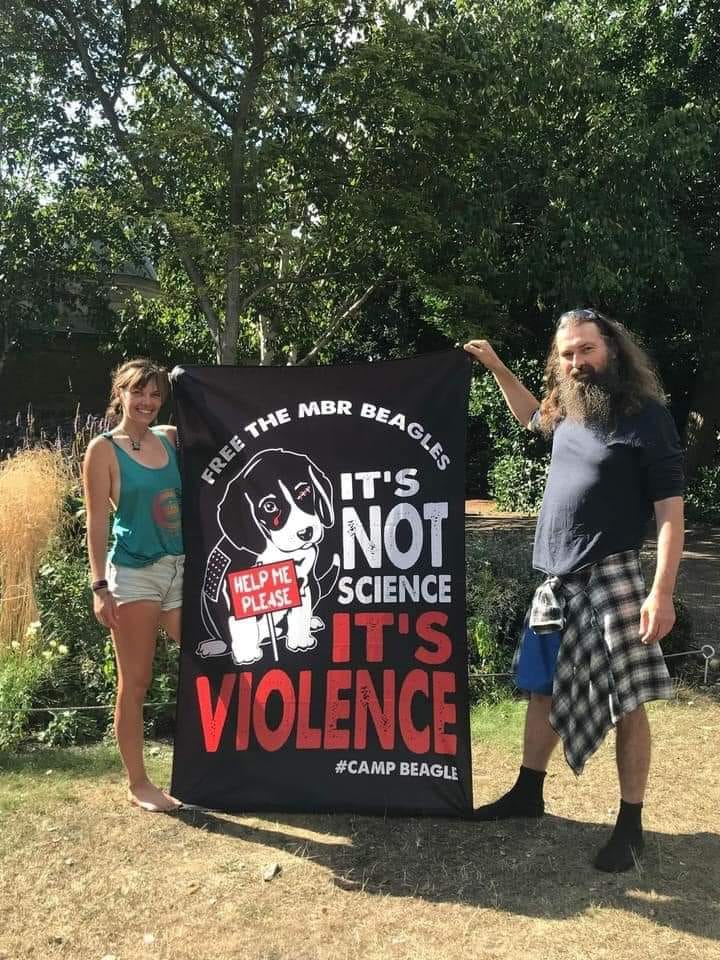
“I pay tribute to the valiant protesters at Camp Beagle who, for 18 months, have been outside the gates of Marshall Bio Resources in Cambridgeshire—it is happening not too far from here.
“I was sent some secretly obtained footage of just a couple of minutes, not highlights culled from several hours, and it was concerning and upsetting to see the barbaric conditions that the beagles are kept in.
“Beagles are good-natured animals who will not bite back.
“They are bred in factory conditions, with no space to run around. They have never experienced sunshine, wind, rain or any such things—no natural light. There were some pictures of them eating faeces, so God knows what diet they are given.
“In those beagles’ lifetime, after 16 weeks—they are only babies, puppies—they go to laboratories and who knows what happens.
“They are injected with bleach, fertiliser and all such things, even at that young age.
“They are sentient beings, just as we are, and that should not continue.”
The MP added: “MBR Acres sounds quite nice, as if the beagles are running around, gambolling in the fields.
“But that is far from the case, and every time what happens to them is put to MBR Acres, it says it is fully compliant with the law and a fully licensed establishment.
“That law, however, is the Animals (Scientific Procedures) Act 1986—but 1986 was a different world. Even I was at school at then. How many Prime Ministers have we had since then—okay, we have had three this year alone—and there was not even the internet.”
She said: “There is a better way of doing things: cutting-edge technologies, modelling three-dimension cell cultures, organs on chips, artificial intelligence. That all harnesses scientific progress.
“Why are we still stuck in 1986, when ‘The Chicken Song’ by Spitting Image—Hold a chicken in the air—was No. 1?
“It was a completely different world.”

She said: “We were told that when we left the EU, we would level up and have higher standards than anywhere else, but that is very far from the truth and from what seems to be happening.
“I am also concerned about how protesters are demonised—as recently as today—even though in this country we have a long tradition of civil disobedience, with the suffragettes, the Levellers, the Diggers and all such things.
“As a statement of MBR Acres puts it: “‘Unfortunately, extremists, including long-time activists, are committing unlawful and dangerous activities each day.’”
The MP said it was not just the demonisation of protesters that worried her, but the validity of animal experimentation for human conditions.
“When people my age were kids, we used to see videos of monkeys being forced to smoke cigarettes, but now we think that is totally barbaric and wrong,” she said.
“As Gandhi put it, the greatness of a nation can be judged by the way it treats its animals.
“There is a lot of room for improvement, and I look forward to hearing what the Minister has to say about fixing this outmoded picture.”
Sarah Dines, the Parliamentary Under Secretary of State for the Home Department, spoke for the Government.
“Our approach has two fronts,” she said.
“First, robust regulation will ensure that animals are not used where a non-animal alternative could deliver the benefit sought.
“And secondly, our strategic aim is to facilitate and promote alternatives to animals in scientific research and testing.
“I therefore believe that we have a shared aim of fully replacing live animals as soon as possible, where that is safe and scientifically possible.”
A number of departments have a stake in the use of animals in science, she said, and The Home Office does not require or commission the use of animals in science.
“Instead, we regulate to ensure that all proposals for work are authorised only where there is justified benefit,” she said.
“And that animals are used only where there is no alternative, that the minimum number of animals is used, that harm is minimised, and that the animals are appropriately cared for.
“I reject the narrative suggesting that that is not the case.”
The minister said the issues raised include the use of animals in science and its regulation, the commercial breeding of laboratory animals, and the development, promotion, and acceptance of non-animal methodologies.
“To be clear, as was said, the UK has never set out to use animals in science,” she said. “Instead, we have set out to deliver public safety, world-class health innovations and breakthroughs, and to make life-changing discoveries, from new vaccines and medicines to transplant procedures, anaesthetics, and blood transfusions.

“Indeed, the development of the Covid-19 vaccine was possible because of the use of animals in research.
“The use of animals in science must always be considered in the broader context. Animal research and testing is only ever a small part of a wider programme.”
“In all these instances, the drive has never been to use animals, but to deliver benefits through the justified use of animals.
“There is significant public concern around the ethical and moral case for the use of animals in science.
“Animals are expensive to use and difficult to work with, and their use carries a burden of regulation.
“Animal experimentation is something that people, including this Government, do not like.
“It is therefore not a matter of choosing to use animals, but of using the best method for the scientific experiment and ensuring that animals are not used when other methods can give the information needed.”
The minister said that although much research can be done with non-animal models, there are still purposes for which it is “unfortunately essential” to use live animals.
“In many instances, that is because the complexity of whole biological systems cannot be replicated simply using validated non-animal methodologies.
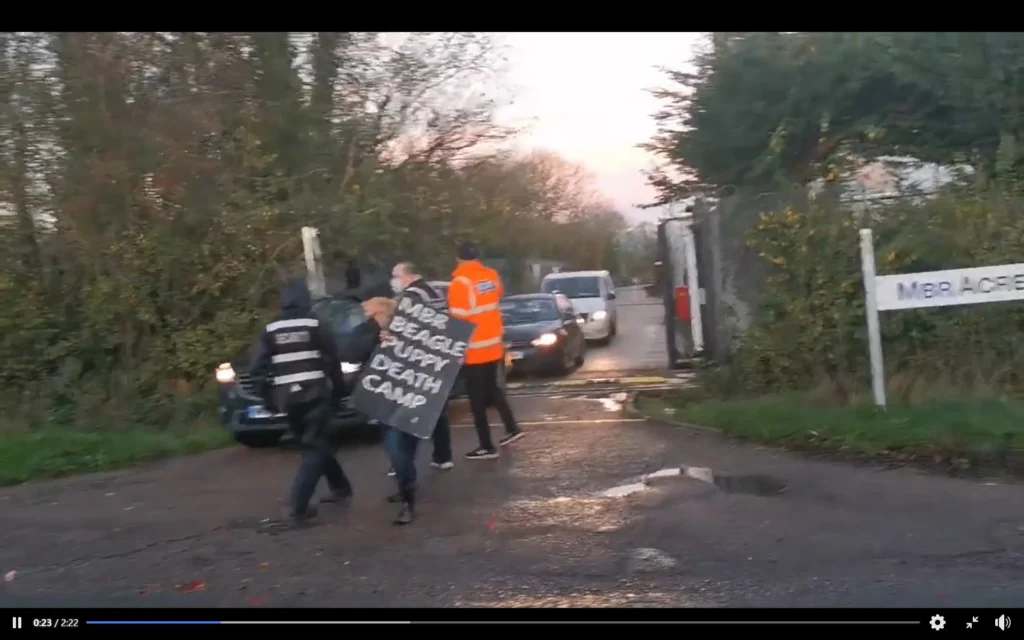
“However, the Government are committed to looking at alternatives, especially where the safety of humans and animals needs to be ensured—a point that is central to some of the concerns we have heard today.”
The minister said that if we were to remove the requirement for animal testing, many potential medicines would not progress on to the market “and the risk to humans in clinical trials would be considerably higher”.
She said: “The Government are clear that when animals are used in science, they must be protected.
“The use of animals in science is therefore highly regulated. A licence is required for every establishment, project and individual involved in performing regulated procedures with animals.
“All establishments are required to have dedicated individuals, including veterinary surgeons, with legal responsibility for the care and welfare of animals, and an ethical review body.
“Establishments are required to comply with published standards for the care and accommodation of all animals bred, supplied or used for scientific purposes.”
The minister said: “If we are to achieve the benefits of the carefully regulated use of animals in science, there must be a supply of animals bred specifically for that purpose.
“Establishments that breed or supply animals for use in science contribute to activities that are critical to protecting human health and to making advances in science.
“Moreover, they are operating within a regulatory framework, set out under the 1986 Act, which requires an establishment licence and assessment of their compliance with regulation.”
She said: “I recognise the strength of feeling shown today on the subject of breeding animals, particularly dogs. It elicits an emotional response, and I understand that.
“However, I must be very clear that while we fully uphold people’s right to peaceful protest within the law, recent events at the dog-breeding site that was mentioned have gone beyond peaceful protest, leading to criminal investigations and sanctions.
“The tactics of protestors have included intimidation, direct action against staff doing their job, and the criminal theft of animals from the site.
“I confirm that sites are regulated and regularly inspected, so we can assure ourselves that such companies are conducting their work in a manner that complies with the law.
“It is important that we agree that individuals doing legal business, under an Act of Parliament made in this place, should have the freedom to continue to do that without threat.”
Ms Dines said: “Banning commercial breeding of dogs for scientific purposes could prevent potential new medicines from being tested in Great Britain.
“If that happened, safety testing work to assure public protection would no doubt have to be offshored to other countries.
“We cannot guarantee that such testing, or the treatment of animals there, would be carried out to the standard that we expect in the UK. Moreover, having exported that work, we may then be importing it back by means of new medicines. Seeking to close commercial breeders is not the answer.
“We must continue to address the issue on other fronts.”
She added: “I agree that we are a nation of animal lovers.
“We believe in high welfare standards. As a nation, we believe in public safety, environmental safety, and the protection of animals where possible.
“That is why the Government’s approach focuses on alternatives that get us away from using animals. Animals will be used only when absolutely necessary. There were many other very useful contributions, which I value and have considered.
“It would be unfair if I took up all the time, but if there are any specific issues that I have not addressed, I would welcome any letters, to which I will respond when there is more time.”
In his summing up, Mr Colburn said it was time the Government “moved towards the ambition of reducing, and finally eliminating, the use of animals in testing”.


